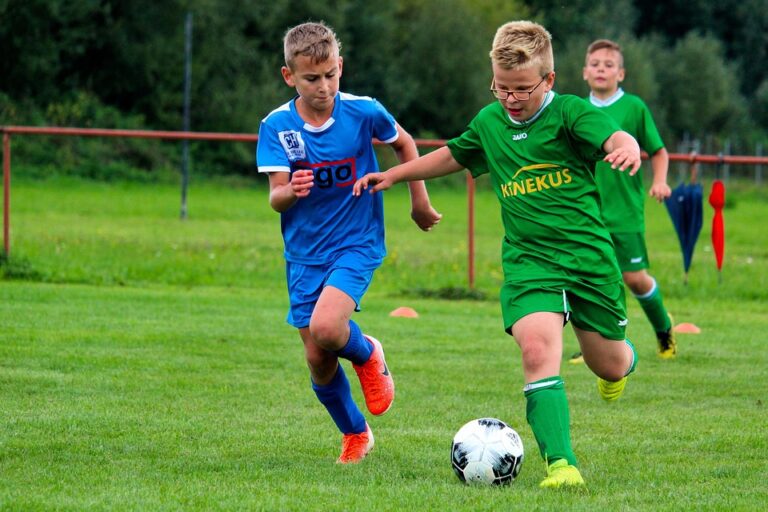Esports Tournaments and Fan Engagement: Building Communities Around Competition
As the digital age continues to evolve, esports tournaments have emerged as more than just competitive events; they are now integral to building vibrant communities and engaging fans worldwide. The growth of esports has been remarkable, leading to a shift in how enthusiasts interact with their favorite games, teams, and players. This article delves into how esports tournaments promote fan engagement and community building, which are crucial for the sustainability of the esports industry.
The Rise of Esports Tournaments
Esports tournaments have rapidly gained popularity over the last decade. According to a report from Newzoo in 2023, the global esports audience is expected to reach 650 million by 2025, indicating substantial growth from previous years. This dramatic increase is reflective of the industry’s broader acceptance within mainstream culture and the growing participation of fans across different demographics.
Held in venues ranging from local arenas to massive stadiums, these tournaments showcase not only skill but also innovation in presentation. The excitement surrounding events like the League of Legends World Championship and The International (Dota 2) highlights the immense draws these competitions have, with viewership surpassing traditional sports events at times.
Fan Engagement Strategies
Enhanced Viewing Experiences
One of the significant contributions of esports tournaments to fan engagement is the creation of enhanced viewing experiences. Broadcasters and platforms such as Twitch and YouTube Gaming provide interactive streams, allowing fans to engage through real-time chat and polls. This interaction fosters a sense of community as fans feel part of the action, discussing strategies and celebrating victories in real-time.
Team and Player Branding
Successful teams recognize the importance of personal branding. Players and teams engage fans through social media channels, offering insights into their lives outside of competitions. This approach breaks down barriers, allowing fans to connect with their favorite players on a personal level. For instance, organizations like Fnatic and Team Liquid have embraced lifestyle branding, giving their followers exclusive access to behind-the-scenes content, thus strengthening the fanbase.
Community-Driven Events
Community events stemming from esports tournaments enhance local engagement. Local tournaments or watch parties in gaming cafes enhance the sense of community. These gatherings bolster local interactions, allowing players to meet their competitive peers and forming lasting friendships.
Incentive Programs
Many esports organizations have introduced incentive programs to boost fan loyalty. Programs that reward fans for attending events or participating in online polls with exclusive merchandise or even in-game items have proven tremendously successful. This approach creates additional layers of engagement, making fans feel valued and appreciated.
The Power of Social Media
Building Connections
Social media plays an essential role in the growth of esports communities. Platforms like Twitter, Instagram, and TikTok allow fans to share their thoughts, memes, and game highlights quickly. According to Statista, over 80% of esports fans engage with esports-related content on social media, significantly increasing brands’ reach and visibility.
Fostering Inclusivity
Social media also fosters inclusivity within the esports community. By promoting diversity and supporting various voices, esports organizations create environments where everyone feels welcome. Initiatives such as Women in Esports have gained traction, further enhancing community engagement and participation across different demographics.
Case Study: The Fortnite World Cup
When examining esports tournaments and their impact on fan engagement, the 2019 Fortnite World Cup serves as a prime example. With a prize pool of $30 million, the event drew over 2.3 million concurrent viewers on Twitch, showcasing the flat-out excitement inherent in competitive gaming. The tournament not only highlighted the skills of top players but also solidified a sense of community among fans, with festivities surrounding the event—including street festivals and online watch parties—turning it into a cultural phenomenon.
Future Trends in Fan Engagement
As the esports industry continues to evolve, several trends will shape the community-building landscape:
-
Virtual Reality Engagement: VR technology promises immersive experiences during esports tournaments and fan interactions, allowing players to feel as though they are part of the action.
- Blockchain and NFT Integration: The use of blockchain technology and Non-Fungible Tokens (NFTs) can create new opportunities for fan engagement, allowing them to own exclusive digital assets related to their favorite teams or players.
Conclusion
In conclusion, esports tournaments play a pivotal role in cultivating passionate and engaged communities. Through innovative fan engagement strategies—ranging from enhanced viewing experiences to community-driven events and the power of social media—these tournaments offer fans unique opportunities to connect and immerse themselves in the world of competitive gaming.
For more insights on the intersection of esports and community building, check out The Evolution of Esports Journalism and Top Skills Every Esports Player Should Master. For deeper industry insights, consider visiting Newzoo, one of the leading analytics firms focused on games and esports.

Image showing fans engaging during an esports tournament featuring various participants.

Image depicting viewers engaged in an interactive streaming experience during an esports event.


